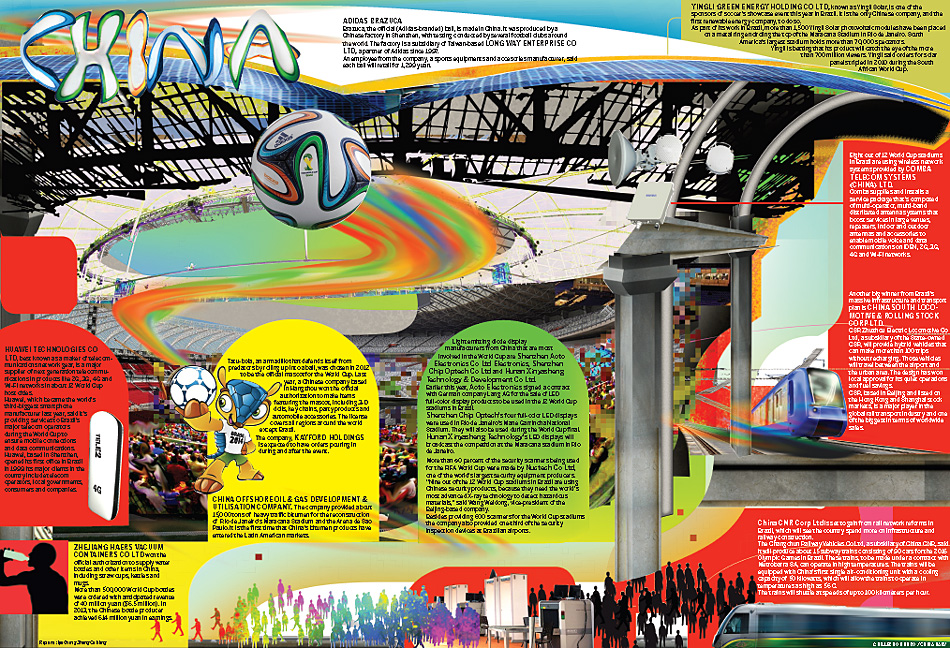|
 |
The most surprising moment at the World Cup is probably not the Uruguay's Luis Suarez's biting his Italian opponent Giorgio Chiellini, but the flickering logo of a Chinese company lining the soccer field as well as a long list of Chinese-made advanced technology products making inroads into the six-week sports gala.
Starting from Yingli Solar, the first and only renewable-energy company to become an official sponsor in both South Africa and Brazil World Cups, Chinese high-tech companies are trying to make a splash in the international market.
Judy Tzeng, vice-president of global marketing at Yingli Solar, said it's sponsoring the World Cup to penetrate the uncharted South American market.
More than 1,500 Yingli Solar PV modules are in place on a metal ring encircling the top of the Estadio do Maracana in Rio de Janeiro, according to the company.
Other Chinese companies are contributing to the World Cup with deals sealed.
Nuctech Co Ltd in Beijing has signed a contact to provide security scanners in nine of the 12 World Cup stadiums, as well as at one-third of Brazil's airports.
"It is just a warm-up," said Wang Weidong, vice-president of the company, who wants to provide more products for the 2016 Olympic Games in Brazil.
Other companies have gone even farther in Latin America's largest country, such as Huawei Technologies and Comba Telecom Systems, which see Brazil as an old battlefield.
Chinese telecom equipment manufacturer Huawei opened its first office in Brazil in 1999, offering handsets and network interface cards to local major operators.
Huawei, the world's second-largest telecom gear maker, said it will ensure trustworthy mobile connections and data communications during the event, while Comba Telecom Systems is mainly providing wireless solutions, including 2G, 3G,4G LTE iDEN and WiFi, in eight of the 12 World Cup fields in Brazil.
Tony Fok, chairman of Comba Telecom Systems (China) Ltd, said the company will use Brazil as a springboard to further explore other markets and achieve a global brand awareness.
Some Chinese companies are still traditionally manufacturers of the official match balls, and other commodities, such as mascots and national flags. But many other companies are increasingly upgrading their innovative capability with more investment in research and development, branding, and design and marketing, key high-end activities at both ends of the production process.
"Low-cost exports cannot sustain an economy," said Zhang Weiying, an economist at Guanghua School of Management at Peking University.